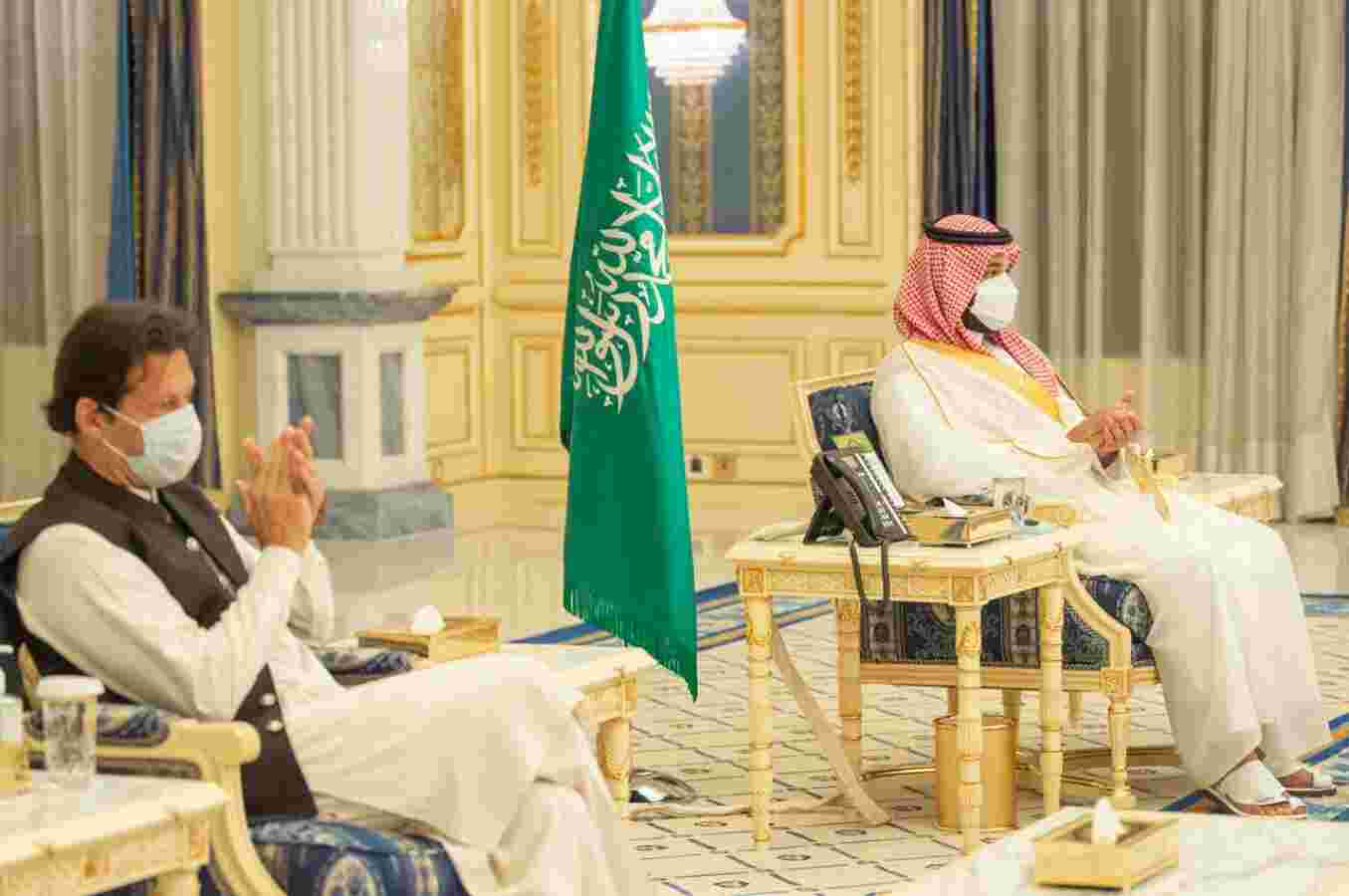Renewed bonhomie
Restoration of bilateral ties between Pakistan and Saudi Arabia could bear interesting outcomes amid ongoing developments in Israel

Bilateral ties between Pakistan and Saudi Arabia had plummeted over the last year, after Riyadh developed a cold feet, denting the historic and strategic relationship of many years. The ties went so bad that Saudi Arabia prematurely extracted the loan worth USD three billion it had lent to Pakistan. However, a recent telephone call from Saudi Crown Prince Mohammad-bin-Salman (MbS) to Prime Minister Imran Khan (PMIK) extending an invitation to visit the Royal Kingdom seemed to have thawed the frozen relations. Soon thereafter PMIK paid a three-day visit (May 7-9) to Saudi Arabia. Pakistan has heaved a sigh of relief with the bilateral ties showing visible mend.
After landing on Saudi soil, Pakistani PM was received by MbS, breaking all protocols which show that a renewed warmth may be in the offing between the two Islamic countries. It may not be out of context to re-examine the principal causes for Saudi Arabia distancing itself from Pakistan in the last year or so. First was, as the domain experts say, Pakistan's immature diplomatic fiasco in getting closer to Turkey, even going overboard with President, Erdogan. The second obvious reason was challenging the sanctity of the Saudi-patronised Islamic outfit, Organisation of Islamic Cooperation (OIC) particularly on the issue of Kashmir where OIC was cautious in not criticising India on the stand on abrogation of Article 370 and effecting some structural changes in the state. In addition to this, Pakistan was warming up to erstwhile Malaysian Prime Minister Mahathir Mohamed who was trying to pose a direct challenge to Saudi Arabia through a faint attempt to usurp the Islamic leadership.
Now, reverting to PMIK's most recent Saudi visit, his arrival was preceded by a high-profile visit by the Chief of Army Staff, General Ahmad Bajwa, where he was thought to have straightened several tricky issues which were seen as the thorn in the flesh from the Saudi side. Assigning this crucial task to the Army Chief is seen as an important matter, more from the Riyadh point of view, as it must have easily accepted the highest-ranking Pakistani military personnel to pave the passage than accepting a civilian personality. It's of course a tradition that Pakistan military officials have always been playing a significant role in the Saudi affairs of governance including those for ensuring the safety and security of the monarchy. It is also believed that prior to Imran Khan's visit, there have been hectic back-channel diplomatic activity between the two countries to break the year-long impasse and if the visit is any indication, then the hiatus is surely put behind. However, only in the long run, one would be able to objectively assess how successful the visit was in terms of any substantial gains.
Meanwhile, upon his return from Saudi Arabia as part of the Prime Minister's entourage, Foreign Minister Shah Mahmood Qureshi at a press conference on May 12, disclosed that the three-day visit of the Pakistani PM saw as many as five concrete agreements signed, out of which the first being the pillar of security and politics which will be handled exclusively by Foreign Minister Qureshi. He was also referring to the formation of a Supreme Coordination Council which will be jointly chaired by PMIK and the Saudi Crown Prince.
He further claimed that under the vision of Crown Prince MbS, millions of jobs will be created. This claim, however, looks far-fetched as we don't know how anything would lead to the creation of millions of jobs. At the media meet, the Pakistani FM also averred that the government of Saudi Arabia will help Pakistan in the fields of energy, infrastructure, water resources and hydropower projects. Analysts feel that the MoUs signed across various fields are expected to deepen political, defence and economic ties between the two countries.
Another important feature of the otherwise garrulous Foreign Minister Qureshi's statement is his allegation that certain quarters were always trying to thwart the warmth in Saudi-Pakistan relations, probably insinuating India. His stance in any foreign policy matter has never been consistent. He is known to take u-turns on several issues including on Kashmir describing it as an internal matter of India then, ostensibly under pressure, quickly retracting from it. While India must take stock of this visit more clinically, some highly placed sources in the Pakistani establishment say that President Joe Biden has pressurised the Saudi Kingdom and Pakistan to reset their ties. With Saudi Arabia getting relatively softer on Iran and simultaneously, the spiralling belligerent tension between Israel and the Palestinians and Hamas, equations may be very interesting to watch. Meanwhile, Pakistan's ally Turkey threatening for military intervention against Israel amid the ongoing imbroglio calls for a closer study of the changing geopolitical ties in the Middle East and West Asia with Pakistan thrown in.
The writer is a retired IPS officer, a security analyst and a former National Security Advisor to the PM of Mauritius. Views expressed are personal



